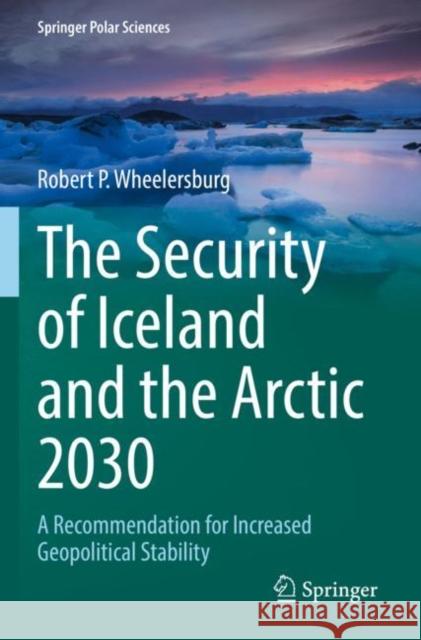The Security of Iceland and the Arctic 2030: A Recommendation for Increased Geopolitical Stability » książka
The Security of Iceland and the Arctic 2030: A Recommendation for Increased Geopolitical Stability
ISBN-13: 9783030899509 / Angielski / Miękka / 2023 / 149 str.
The Security of Iceland and the Arctic 2030: A Recommendation for Increased Geopolitical Stability
ISBN-13: 9783030899509 / Angielski / Miękka / 2023 / 149 str.
(netto: 421,70 VAT: 5%)
Najniższa cena z 30 dni: 424,07
ok. 22 dni roboczych
Dostawa w 2026 r.
Darmowa dostawa!
This book outlines a recommended Icelandic security force as part of the country’s defence against sub-strategic threats such as human trafficking by criminals or border incursions by other states. It also tests the recommended security force through the development of four different hypothetical scenarios in the year 2030 designed to show the force’s successful implementation. Melting of the Arctic ice pack, and the opening of the Transpolar Sea Route around 2025 could lead to an increase in traffic into the North Atlantic from the Pacific (and vice versa). That movement is predicted to bring a massive influx of tourists, business interests, and government entities into the region. Along with legitimate uses of the new shipping lanes, the opportunity for terrorists, criminals, and rogue states to travel in and around the Arctic could lead to increased smuggling, violence, and sovereignty disputes (i.e., seizing uninhabited terrain). A review of Iceland’s current security policies indicates that the parliament provided the legal framework to create the recommended security force with the 2016 Parliamentary Resolution establishing a National Security Policy for Iceland. Many scholars and government officials believe that the Iceland public would not support a security force culturally. Yet, recent surveys reveal that many Icelanders could accept a security force to protect them from sub-strategic threats, especially if the increased security could be attained without the intervention of foreign military forces. The recommended security force utilizes Icelandic search-and-rescue volunteers and Reservists to increase the protection of the country funded by its full NATO contribution.
This book outlines a recommended Icelandic security force as part of the country’s defence against sub-strategic threats such as human trafficking by criminals or border incursions by other states. It also tests the recommended security force through the development of four different hypothetical scenarios in the year 2030 designed to show the force’s successful implementation. Melting of the Arctic ice pack, and the opening of the Transpolar Sea Route around 2025 could lead to an increase in traffic into the North Atlantic from the Pacific (and vice versa). That movement is predicted to bring a massive influx of tourists, business interests, and government entities into the region. Along with legitimate uses of the new shipping lanes, the opportunity for terrorists, criminals, and rogue states to travel in and around the Arctic could lead to increased smuggling, violence, and sovereignty disputes (i.e., seizing uninhabited terrain). A review of Iceland’s current security policies indicates that the parliament provided the legal framework to create the recommended security force with the 2016 Parliamentary Resolution establishing a National Security Policy for Iceland. Many scholars and government officials believe that the Iceland public would not support a security force culturally. Yet, recent surveys reveal that many Icelanders could accept a security force to protect them from sub-strategic threats, especially if the increased security could be attained without the intervention of foreign military forces. The recommended security force utilizes Icelandic search-and-rescue volunteers and Reservists to increase the protection of the country funded by its full NATO contribution.











